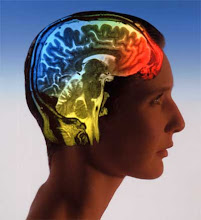Multiple intelligences is a popular area of the topic intelligence, but there tend to be a lot of misunderstandings. Hope I can clarify a little:
The theory was proposed as a reaction against the idea of unitary intelligence, and the importance of IQ scores.
Gardiner (1983) felt that IQ was too simply defined and measured - short answers on a test could not accoutn for all types of intelligent behaviour.
If you compare two people, one might be less able in one area than the other, but the other might be stronger in another are of cognition.
Gardiner believes that everyone has a unique pattern of intelligences, a unique 'cognitive profile'.
Gardiner set out eight criteria for whether an ability or capacity should be defined as an intelligence, including:
- There are case studies of individuals exhibiting unusual talents in the capacity
- There is neurological evidence of areas of the brain specialized for the capacity
- The capacity has clear evolutionary relevance
- There exists a symbolic notation (e.g. written language, musical notation, choreography).
Seven intelligences were originally set out. An eigth, naturalistic intelligence, was added in 1999. Discussions are ongoing as to whether a ninth, existential intelligence, should be included in the theory.
Here's a more colourful version of the image from your booklet!

No comments:
Post a Comment